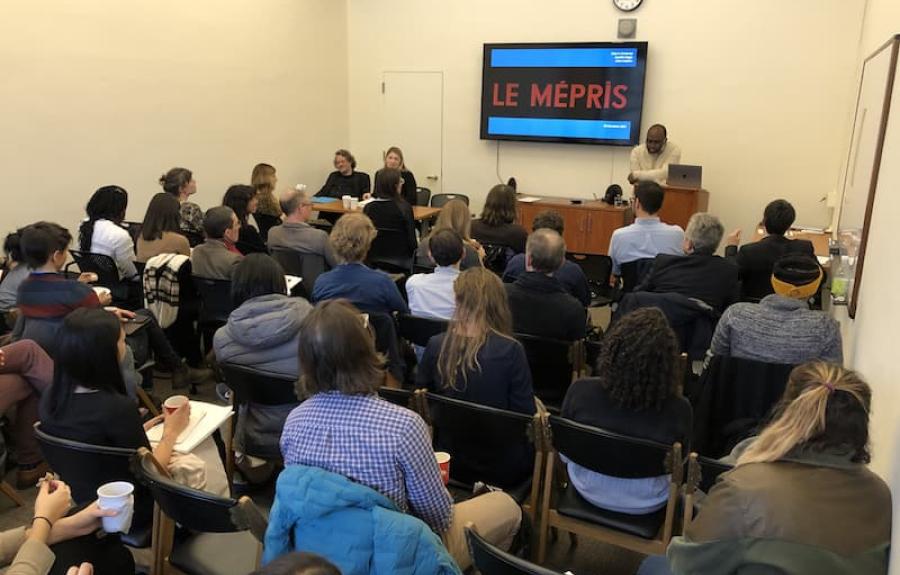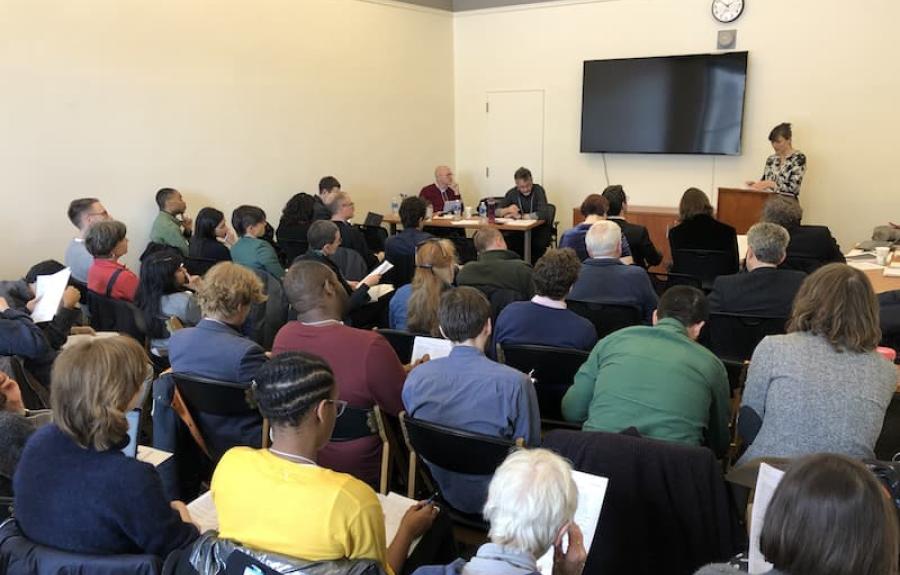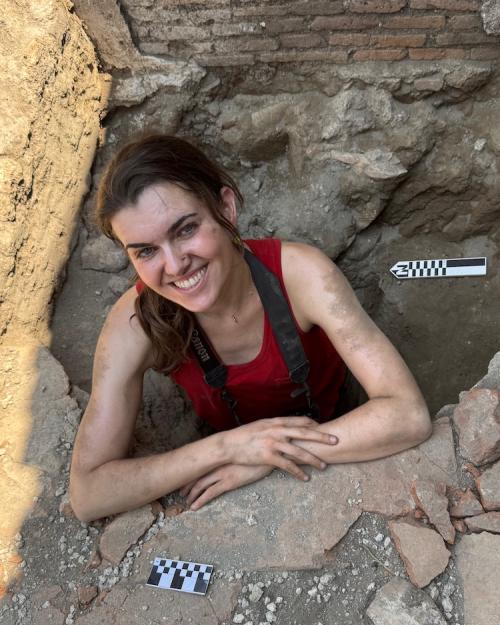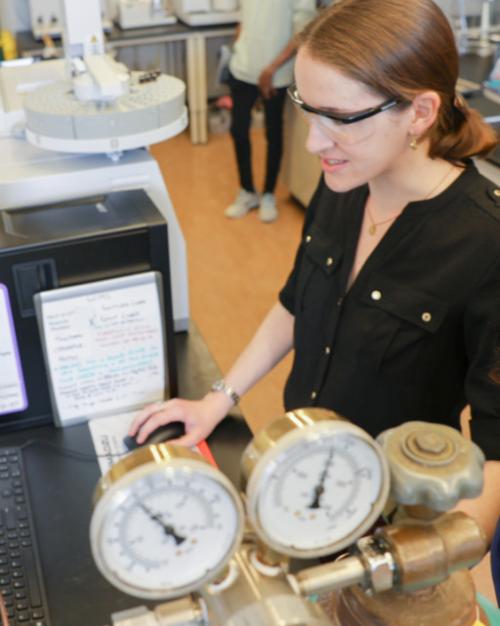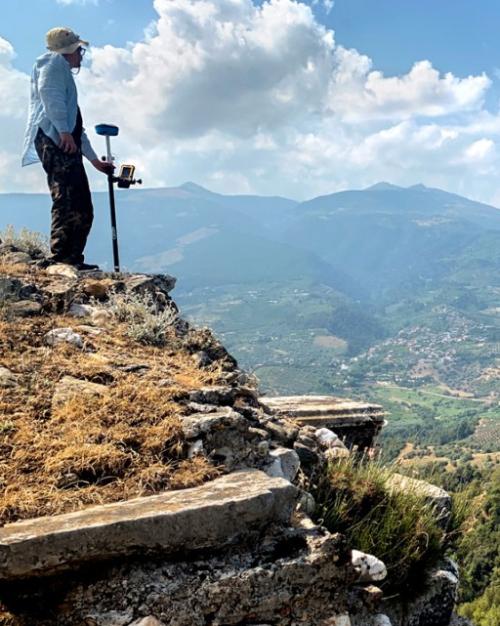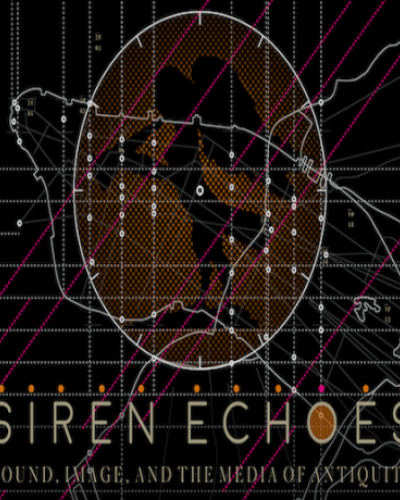On November 7-9, Cornell University hosted the first of a sequence of Media Studies conferences, Siren Echoes: Sound, Image, and the Media of Antiquity. It was sponsored by CIVIC (Critical Inquiry into Values, Imagination and Culture), the provost’s Radical Collaboration initiative focused on the Humanities and the Arts. The conference was organized by Verity Platt, Professor of Classics and History of Art, Athena Kirk, Assistant Professor of Classics, Erik Born, Assistant Professor of German Studies, and Evan Allen, a PhD student in History of Art.
The conference highlighted collaborations among a variety of backgrounds and academic fields. Participants included Cornell faculty and graduate students, a group of faculty from Princeton University, faculty in the CNY Humanities Corridor (a regional collaboration between Syracuse University, Cornell University, the University of Rochester, and other liberal arts schools and colleges in the central New York region), scholars from Germany, the UK, and Korea, and many others. Allen described this as one of the goals of the conference: “We hoped to bring an interdisciplinary group of scholars, researchers, and graduate students together in order to interrogate existing intersections of media studies and the study of antiquity, while also charting new opportunities to collaborate across these (and many more!) disciplinary fields.” Platt said, “We established links both local and international, and look forward to future collaborations.”
Professor Dan-el Padilla Peralta of Princeton University introduces the panel "Genealogies of the Image"
The conference was an important opportunity, as Platt said, “to put the emerging study of media and the premodern on the map here at Cornell.” Born said, “My main reason for helping organize the conference was the opportunity to bring together scholars working on media and the ‘premodern’, a label that could include Classics, Medieval Studies, and work in Area Studies. I firmly believe that Media Studies should inform ongoing work on premodern cultures of sound, image, and text; and that these disciplines, in turn, can contribute novel insights to Media Studies, which often skews toward the present for a variety of reasons.” Claire Challancin, a PhD student in Classics (Archaeology) expressed her excitement and hope for the future in the field: “Overall, I really enjoyed the conference, and I really appreciated the fact that very different fields of study were brought into the same discussion. It made me very hopeful, and I am looking forward to seeing more work taking ideas from both disciplines and putting them into conversation.”
Graduate students had the opportunity to respond to the panels. Respondents included Charlotte Hunt (Classics), Alice Clinch (History of Art), and Ksenia Pavlenko (History of Art) from Cornell, and Pria Jackson (Classics), Paul Eberwine (Classics), and Mark Paul (Art & Archaeology) from Princeton. As Allen said, “Many times, conferences with such established scholars can feel as though graduate students don’t have a place in the conversation. We wanted to flip this around, and instead gave the graduate students a place of prominence in starting off our post-panel conversations. They set the tone, in effect, for the reception of the papers and it ended up being one of the most exciting aspects of our conference.”
Professor Athena Kirk of Cornell University presents a lecture for the panel "Sounds of the Anthropocene". Kirk commented, "So many thrilling collaborations emerged from this conference - between media theorists and scholars of antiquity, local and international speakers, and faculty and graduate students. The panels explored sources ranging from Syriac sermons to French new wave film, from equally rich theoretical perspectives. Throughout the conference, the discussion returned to central questions and critiques of how we define media, and how we deploy the Classical past."
Several participants considered the graduate responses to be among the highlights of the event. Born said, “My favorite moments at the conference were hearing the insightful interventions from the graduate student respondents. They had a knack for getting straight to the heart of the issue and asking challenging but respectful questions.” Hunt, a PhD student in Classics (Philology), who responded to the panel entitled “Sounds of the Anthropocene” said, “I found it so enriching as a graduate student to respond to a panel. Because I had the opportunity to give my own arguments on the topic before the end of panel questions, I felt fully integrated into a panel which was so relevant to my own research interests.” Challancin noted that “the students’ responses really facilitated this process of comparison and contrast, as well as cooperation between the different fields (Classics, History of Art, Media Studies, German Studies, etc.), which I believe was ultimately the goal of the conference.” Platt added, “I especially appreciated the spirit of open-mindedness, warmth, and intellectual generosity which all of our participants brought to the event. It felt like a very collaborative experience, not least thanks to the wonderful graduate students who served as respondents to each of the panels.”
A second conference is already planned for the spring. Platt looks forward to an event focused on “emerging topics of debate in modern and contemporary media, both local and global.” She will also soon be offering a related graduate course on “Media and the Premodern” in Spring 2021. As she put it, “There is some very exciting emerging work for us to explore!”
Images courtesy of Evan Allen
